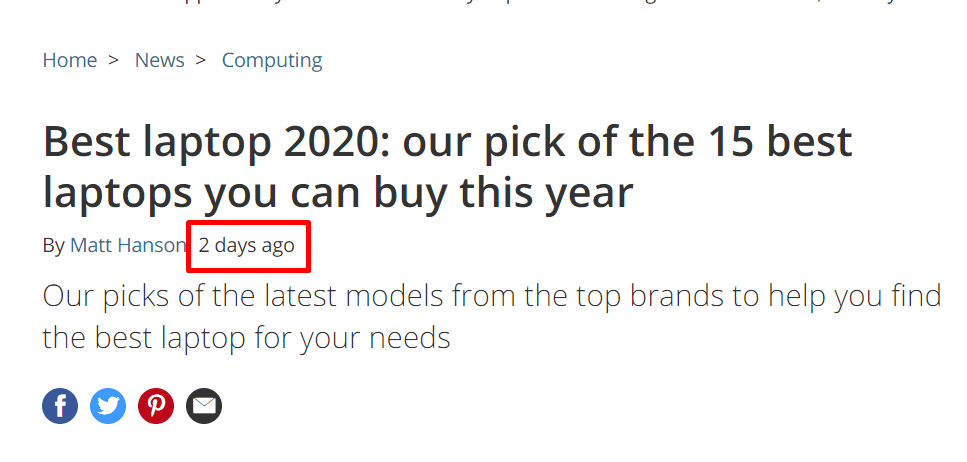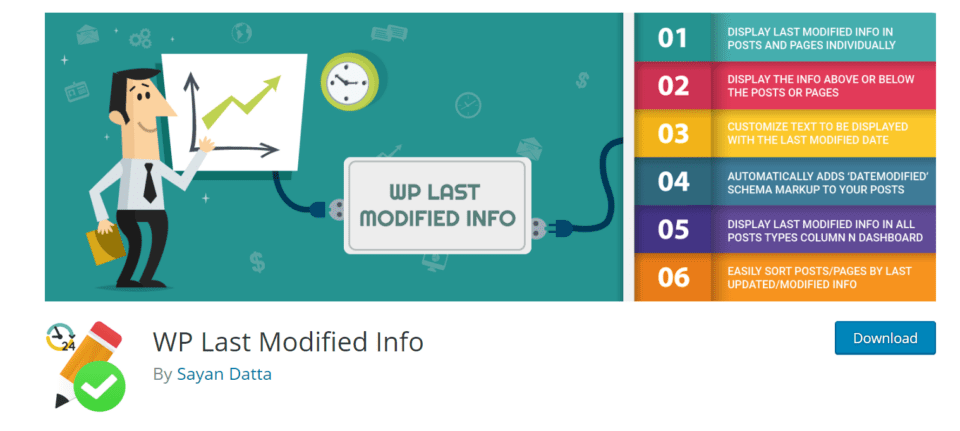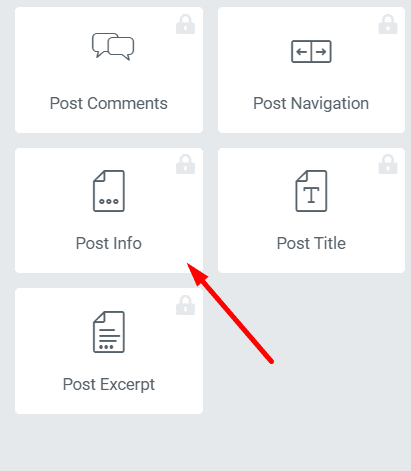A couple of years ago, the blogosphere went crazy for updating old content.

Optimizing your existing posts became the default for a lot of sites. It was even a higher priority than posting new content, because people realized that old content can age badly.
So freshness is really important, right?
Well the answer is a bit more complex than that. SEO is a complicated field. Just like with many other questions, freshness importance has a long-winded answer.
In some cases, Google cares a lot about freshness.
However, that doesn’t mean it’s the end-all be-all criteria you should take into account.
So let’s delve into this.
The Updating Trend Of 2018
Back in 2018, a lot of online marketers saw Google’s updates and figured freshness (how recent your article is uploaded or written) matters very much for the tech giant.
So they started updating old content.
We did too at Authority Hacker.

And we had pretty decent results.
So far, it sounds pretty clear-cut. Just update your old content, right?
There’s a Catch
First, a lot of WordPress sites just show the original upload date, even if you edited the article.

And that even translates to the SERP.
So even if freshness is an important factor, you should still think this through and use specific software to update your content.
But let’s put that aside for a minute.
What you need to remember about freshness is that, in a lot of cases, it matters a lot for indexing…
But it’s not that big of a factor for ranking.
On top, you should never lose sight of uploading new content. In our analysis of 1.1 million SERPs, we found that one of the defining characteristics of pages ranking number one for a keyword was page age.
Most articles showing up in the top results were written years ago.
And this applies to somehow time-bound queries too.
For example, if you google “seo guide” you might expect a pretty new article, considering how much SEO has changed even compared to 2-3 years ago.
Nope, this is what you get:

So if freshness matters, it’s not always the most important aspect.
So When Is Freshness Most Important?
Some smart SEOs call these QDFs – Queries Defined by Freshness.
And basically, freshness is most important when you’re talking about news or time-bound queries, like “best laptop.”

It makes sense – Google won’t show an old page if you’re looking to buy a new laptop.
Similarly, if you’re searching the newest articles on “Trump” you won’t be satisfied with a book review of Fire and Fury from three years ago.
But when it comes to general articles and evergreen content…
Freshness is not necessarily the most important aspect you should keep in mind.
Like with most things SEO, if you want to rank you should default to keeping Google happy,
So What Is Important For Google?
According to our research, content age, keyword use, parent topic use, backlinks, and user experience matter a lot when trying to rank for any keyword.
If you want to keep Google happy, those are your priorities.
But here’s something to remember for all of your SEO efforts:
Google makes money out of the ads they show, so they want to keep people on their platform, and have users satisfied enough to return and search using their engine.
This should be your paradigm for thinking about SEO decisions.
Is this something Google would like for their users?
If we’re talking about updating a review once a year with new relevant data, that’s probably something Google would be stoked about.
If we’re talking about changing the publish date to a newer one for each article, it might not be the best choice.
What’s The Takeaway For You?
Like all things SEO, freshness importance and how you act based on that should be based on your site’s needs.
An updated Europe Travel Guide to fit new Coronavirus developments is great.
But a Europe Travel Guide that just has 2020 in the title but doesn’t really tell a different story than the same guide written in 2018 – that’s not as helpful.
Moreover, if you write tech reviews, updating all older content is a must-have, and you should get on it.
But if you write PS or Illustrator tutorials, maybe not every article needs a “2020 edition.”
In fact, successful websites have a good mix of new content and updated old content.
Here’s today’s key takeaway: Most people can think of articles they should update on their site.
But you need to do it the right way.
How To Use Freshness To Your Advantage
First, you need the right tools. As we said, WordPress will only display the first published date, and Google will pick that data too.
So make sure you install the Last Modified Info plugin.

Go into the tool and enable the plugin for posts on Frontend.
This will take care of what’s displayed to your visitors.
But for a real change, you also need to update the backend.
For that, insert a “post info” element from Elementor Pro (or the equivalent from your page builder) and change it to a Dynamic block.

Last step, click on the Schema icon, enable Schema Markup and choose a date format.
That’s the technical aspect of it – but it shouldn’t be your only effort.
Whenever you update a post, make sure you:
- Rewrite any sections that didn’t age well
- Add exciting new info to your piece
- Solve broken links and find new sources to link to
And actually do your due diligence to make it an updated post.
Last year we implemented all of this process on our site, and the results speak for themselves.

It does look like this process can help pages that don’t age well return to their former glory.
Feature Image Credit: CC 0; Public Domain. Photo by Appolinary Kalashnikova on Unsplash.
Disclaimer: The views and opinions stated in this post are that of the author, and Return On Now may or may not agree with any or all of the commentary.
This guest post brought to you courtesy of Return On Now, Professional Austin SEO and PPC Services Company.
Gael Breton
Latest posts by Gael Breton (see all)
- Will Affiliate Marketing Survive In Its Current State? - February 15, 2022
- How Much Does Google Really Care About Content Freshness? - September 22, 2020





